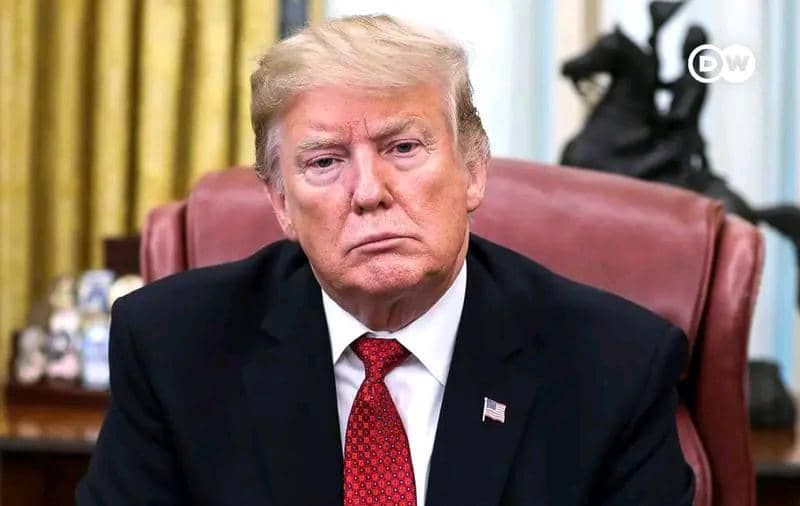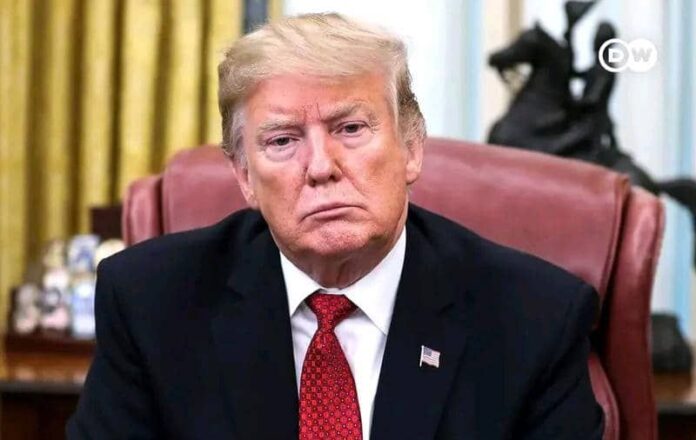By Burnett Munthali
In a historic and controversial decision, US President Donald Trump has formally moved to dismantle the United States Agency for International Development (USAID), marking a significant shift in the country’s foreign aid strategy.
The agency, which has played a crucial role in providing billions of dollars in aid to millions of people across the globe, will soon cease operations, and its remaining employees will face termination.

The decision underscores Trump’s commitment to reshaping US foreign policy in alignment with his administration’s priorities.
Shortly after assuming office in January, President Trump wasted no time in signaling his intent to reevaluate America’s approach to international assistance.
He signed an executive order temporarily freezing US foreign aid for 90 days, an early indication of his skepticism toward the effectiveness of traditional aid programs.
His latest move to dismantle USAID follows a broader pattern of skepticism toward multilateral institutions and international development efforts.
USAID, established by Congress in 1961 during the presidency of John F. Kennedy, has long been a pillar of American foreign policy.
It has spearheaded humanitarian efforts in conflict zones, responded to natural disasters, and provided developmental support in impoverished regions worldwide.
Its initiatives have ranged from combating HIV/AIDS and malaria to promoting democracy and economic development in fragile states.
Over the decades, the agency has built a reputation for fostering global stability through diplomacy and development aid.
However, Trump’s administration has taken a different stance, questioning the efficiency and necessity of large-scale foreign aid.
Critics within the government argue that USAID’s programs often lack accountability, while proponents of the move believe that American taxpayers’ money should be prioritized for domestic issues rather than foreign aid.
The decision to dismantle USAID aligns with Trump’s broader “America First” agenda, which seeks to redirect funds from international commitments to national priorities.
The move has sparked widespread reactions from policymakers, development organizations, and foreign leaders.
Many warn that the absence of USAID could leave a vacuum in international development efforts, potentially exacerbating global poverty, humanitarian crises, and instability.
The agency’s contributions to disaster relief, healthcare, and food security programs have been widely acknowledged, and its dissolution raises concerns about who will fill the gap left by its departure.
On the domestic front, the termination of USAID employees has led to concerns about job losses and the future of American diplomatic influence abroad.
Many career diplomats and aid workers view the decision as a dismantling of a key soft power instrument that has historically advanced US foreign policy interests.
The loss of USAID could also weaken America’s ability to counteract the influence of rival powers, such as China and Russia, which have been increasing their development assistance programs in Africa, Asia, and Latin America.
Despite the backlash, the Trump administration remains firm in its position.
Officials argue that foreign aid can be streamlined through other channels, including direct assistance to select allies and international organizations that align with US strategic interests.
They contend that restructuring aid distribution will enhance efficiency and ensure that American funds are used in a manner that directly benefits US foreign policy goals.
As the world watches this unprecedented development unfold, the dismantling of USAID marks a pivotal moment in US foreign relations.
The implications of this decision will be felt for years to come, reshaping America’s role in international development and redefining the country’s approach to global engagement.
Whether this move will strengthen or weaken US influence on the world stage remains to be seen, but one thing is certain: Trump’s decision has ignited a debate that will shape the future of American foreign aid policy.



